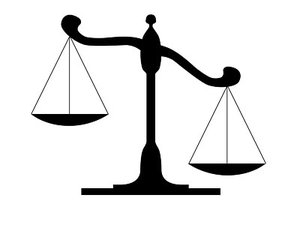Clause 3 - High Court Judgement
3.1.0 (High Court Judgment)
This court also finds that the appellant’s claim has no grounds of reason. The reasons for judging so are included in the supplements and/or additions in article 2 below.
They are also the same as explanations given in the “Facts and Reasoning” section of the original verdict in clause 3, articles 1 to 5 (Original Verdict – page 6, line 10 to page 45, line 11) and so this is hereby quoted.
Top of Page
3.2.1 (High Court Judgment)
Examples of new symptoms that the appellant developed during Appellee X’s treatment included: becoming sensitive to heat (On page 18 of evidence article Otsu A1 (TN: Dr. X’s patient file) there is the entry “feverish”), palms of hands sweating abnormally, becoming prone to the development of mouth ulcers, and it is claimed that these were attributable to tolerance to the benzodiazepines, withdrawal and/or side-effects.
However, these symptoms can also be taken as symptoms of “Autonomic Nervous Disorder” (Evidence article Hei B14, 17. (TN: Literature submitted by the hospital stating that certain symptoms can be associated with either stress or benzodiazepine dependency). NB: The appellant reported that he had developed “feverishness” at consultation with Appellee X on June 30th, 2000 (Evidence article Otsu A1), he also complained of sweaty palms around October 1999 (Evidence article Koh A23-1&2).
Further, mouth ulcers, flushes (sensitivity to heat, facial blushing) and onset of fever is listed as a side-effect of Rivotril (TN: Clonazepam) and onset of fever and flushes are listed as a side-effect of Grandaxin (TN: Tofisopam) in each of the package inserts for the above listed medications, but in either case the possibility of occurrence is no more than 0.1%.
Also, during Appellee X’s treatment, there was no increase in the doses of benzodiazepine type drug prescribing, results of routine tests including the body gravity centre movement tests etc all progressed well, and there was nothing to confirm any signs of tolerance such as a blunted response to the benzodiazepine type drugs.
Further, during Appellee X’s treatment, the dosage amounts remained the same as outlined above, and because there was nothing to confirm tolerance, it could not have been possible for the appellant to develop withdrawal symptoms (withdrawal) during that period (There is not sufficient evidence to confirm that the appellant had developed severe withdrawal symptoms even during the time when the appellant did not have physical access to benzodiazepine type drugs).
Therefore, the appellant’s claim that the above symptoms developed as new symptoms due to tolerance to the benzodiazepines, withdrawal and side-effects cannot be directly confirmed. Subsequently, the appellant’s claim above cannot be accepted.
Top of Page
3.2.2 (High Court Judgment)
The appellant claims that symptoms such as lethargy, dizziness, staggering etc. were the result of tolerance to the benzodiazepines because they disappeared after commencing Appellee X’s treatment, and then later reemerged.
However, as outlined above, there was nothing to confirm any signs of tolerance such as a blunted response to the benzodiazepine type drugs.
Certainly, on December 13th, 2000 the appellant reported to Dr. K at the ORC Hospital that his dizziness had disappeared but he still had flickering vision, shortness of breath, staggering etc. and on the 21st of the same month he reported dizziness, staggering, shortness of breath and many other symptoms to Dr. M at the Medical Center, and on the 25th of the same month he handed a list of new symptoms to Appellee X.
However, the results of the routine tests that Appellee X conducted on the same day (TN: Dec 25th) were all good and there was more improvement to be seen on the body gravity centre movement test since the time of the first presentation.
These symptoms reported by the appellant, apart from vitreous opacities (NB: The ophthalmologist at the Medical Center diagnosed this as being physiological) can all be explained as “Autonomic Nervous Disorder”, and at the time, Dr. M diagnosed the appellant as having “Autonomic Nervous Disorder”.
Considering this, and that the appearing and disappearing of symptoms and the ever changing nature of symptoms in that they are not stable is characteristic of “Autonomic Nervous Disorder” (Evidence article Hei B14, 17.) (TN: Literature submitted by the hospital stating that certain symptoms can be associated with either stress or benzodiazepine dependency) it cannot be directly determined that these symptoms are the result of tolerance to benzodiazepines. Subsequently, the appellant’s claim above cannot be accepted.
Top of Page
3.2.3 (High Court Judgment)
The appellant claims that he was benzodiazepine dependent because he experienced an initial worsening of symptoms as a result of undergoing the reduction program by Dr. Judson.
However, because it cannot be accepted that the appellant had developed tolerance, the development of symptoms observed at the time of reduction cannot be accepted as being those of withdrawal.
Although, the symptoms of “Autonomic Nervous Disorder” initially worsened as a result of the dosage reduction, as outlined in the history above, after returning home there definitely would have been a settling psychologically. Therefore, there is room to argue that the symptoms would have eventually improved anyway in spite of the fact that the drugs were stopped.
Based on that, there is nothing to directly confirm that the appellant had fallen into a state of benzodiazepine dependency just because it was said that there was an initial worsening of symptoms as a result of the appellant undergoing a reduction program in his home country.
Subsequently, the appellant’s claim above cannot be accepted either.
Top of Page
3.2.4 (High Court Judgment)
The appellant’s claims are based on Dr. Judson’s reports, and therefore, I herby review those reports submitted in this case below.
Dr. Judson’s reports (evidence articles Koh A35-1 & 2, Koh A39-1 & 2) (TN: Reports Three and Four & Japanese translations) make a judgmental decision that the appellant was benzodiazepine dependent under the basic understanding that benzodiazepines are highly addictive, and regardless of the doses, if taken for more than 2~4 weeks tolerance and withdrawal can occur.
Therefore, benzodiazepine type drugs should not be prescribed for any more than 2~4 weeks.
In the appellant’s case, following about 1.5 months of treatment, the early stages of tolerance had developed, following about 4~6 months of treatment, tolerance and new symptoms consistent with withdrawal had developed, and withdrawal was observed during the reduction program carried out by Dr. Judson etc.
However, the only written information contained in the package insert of the benzodiazepine type drugs that were prescribed to the appellant; Rivotril (TN: Clonazepam) and Contol (TN: Chlordiazepoxide) is that it is possible for drug dependency to form on high repeated doses, and there is no written information relating to the possibility of developing drug dependency on clinical doses.
Also, on the package insert of Grandaxin (TN: Tofisopam) there is no reference made to developing dependency on this particular drug, and therefore, as ruled in the original verdict, the development of dependency to prescription doses of benzodiazepine type drugs cannot be recognized as established medical knowledge in our country (TN: Japan).
Further, when continued long term, even in cases where clinical doses of benzodiazepine type drugs are prescribed, there is the possibility of withdraw symptoms being observed upon cessation.
However, for the development of this type of withdrawal to occur the prescriptions need to be for more than 4 or 6 months, and the possibility of the development of withdrawal for prescription periods of more than 8 months is 43%, but in cases under 8 months, it is estimated at 5%.
When these points are included within the context, it is difficult to accept the premise of Dr. Judson’s opinion regarding the basic understanding of benzodiazepine type drugs from the outset.
Further, it cannot be confirmed that the appellant developed tolerance and withdrawal symptoms (withdrawal) during Appellee X’s treatment, and also as outlined above, it cannot be confirmed that that the symptoms observed during Dr. Judson’s reduction program were caused by the development of withdrawal.
Judging from these points, Dr. Judson’s judgmental decisions contained in his aforementioned reports leave doubt, and from these reports there is nothing to directly confirm that the appellant was benzodiazepine dependent.
Top of Page

Justice or Not?
- I think the ultimate discrepancy in the High Court Verdict is that the Judge failed to rule out the fact I was dependent in terms of the DSM-IV-TR (worldwide recognized diagnostic standard) which formed the overall basis for the entire case.
- Although the Judge addressed two of the criteria in tolerance (criteria 1) and withdrawal (criteria 2), albeit without any direct reference to the DSM-IV-TR itself, he completely failed to address the other three that were being claimed – effectively leaving them standing.

The primary language of this website is English. Japanese appears as translations only (except for some original court documents).
These translations have been done by many different translators including me. Therefore, there are differences in quality and styles.
Please understand that I am not native Japanese and subsequently there are parts that may sound unnatural in Japanese.

- Our key witness was twice denied the opportunity to testify – once by the Tokyo District Court and once by the Tokyo High Court.
- The Tokyo District Court judge raised an issue in the defense's favour only after proceedings had ended totally denying us any opportunity for rebuttal.
- The Tokyo High Court judge chose to use the package inserts from the drug companies to determine the amounts at which benzodiazepines could be deemed addictive, completely ignoring the extensive evidence (literature, expert opinions etc) submitted to the contrary.
- The courts made no issue over the prescribing doctor diagnosing me with one thing and treating me with drugs used for something completely different.
-
More than half the applied DSM-IV-TR diagnostic criteria for dependency were not addressed in the verdict.
- The presiding High Court judge was replaced half way through proceedings by a judge who knew absolutely nothing about the case or benzodiazepines before the verdict was delivered.
“Benzos are responsible for more pain, unhappiness and damage than anything else in our society.”

Phil Woolas MP,
Deputy Leader of the House of Commons,
Oldham Chronicle, February 12, 2004

This section focuses on some of the apparent injustices of the Japanese courts in my case. To help highlight these, some parts of this section include cross-referencing between the High Court Verdict and the Dependency Reports which were all based on the official evidence and the DSM-IV-TR diagnostic criteria for dependency.






